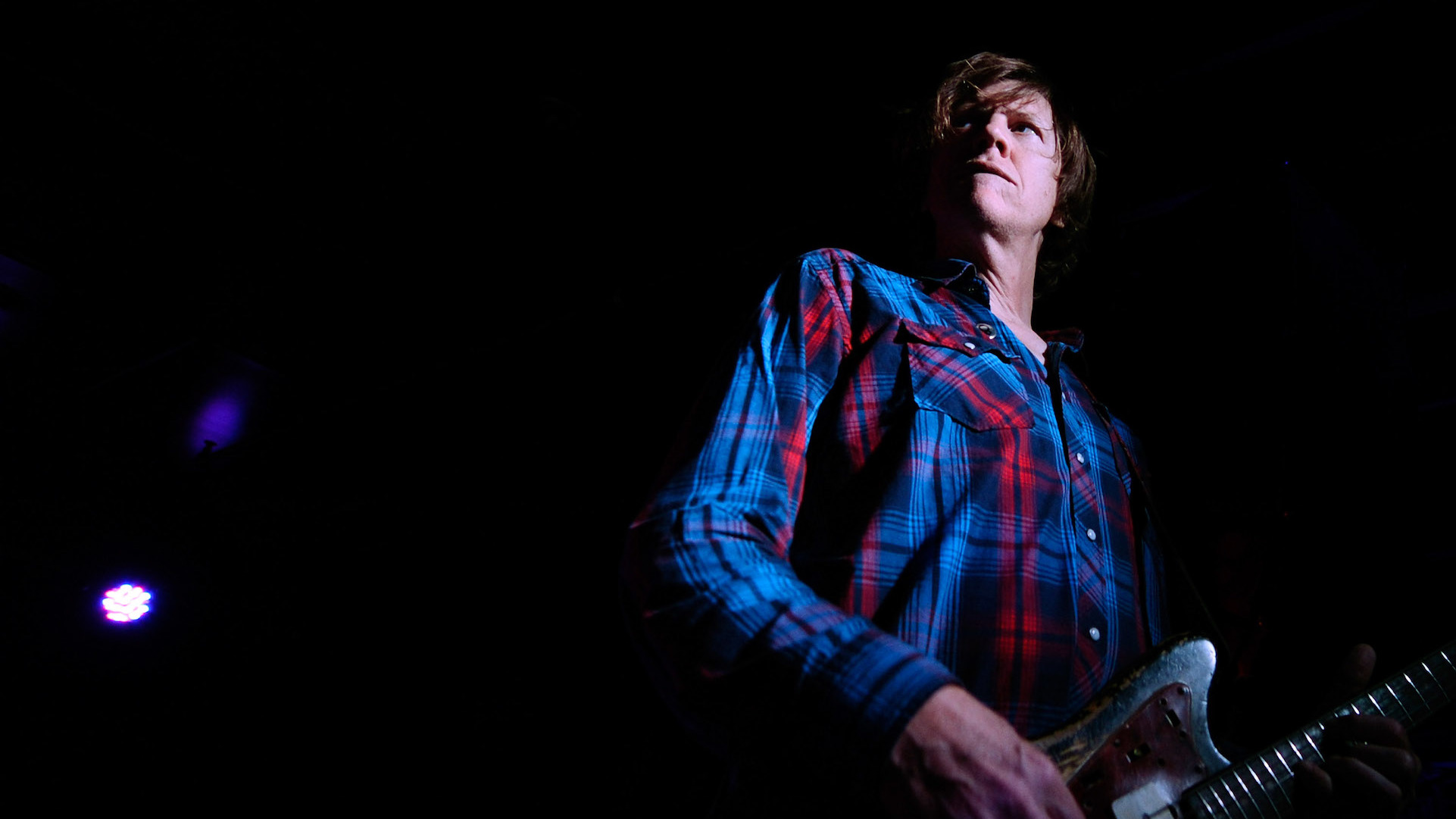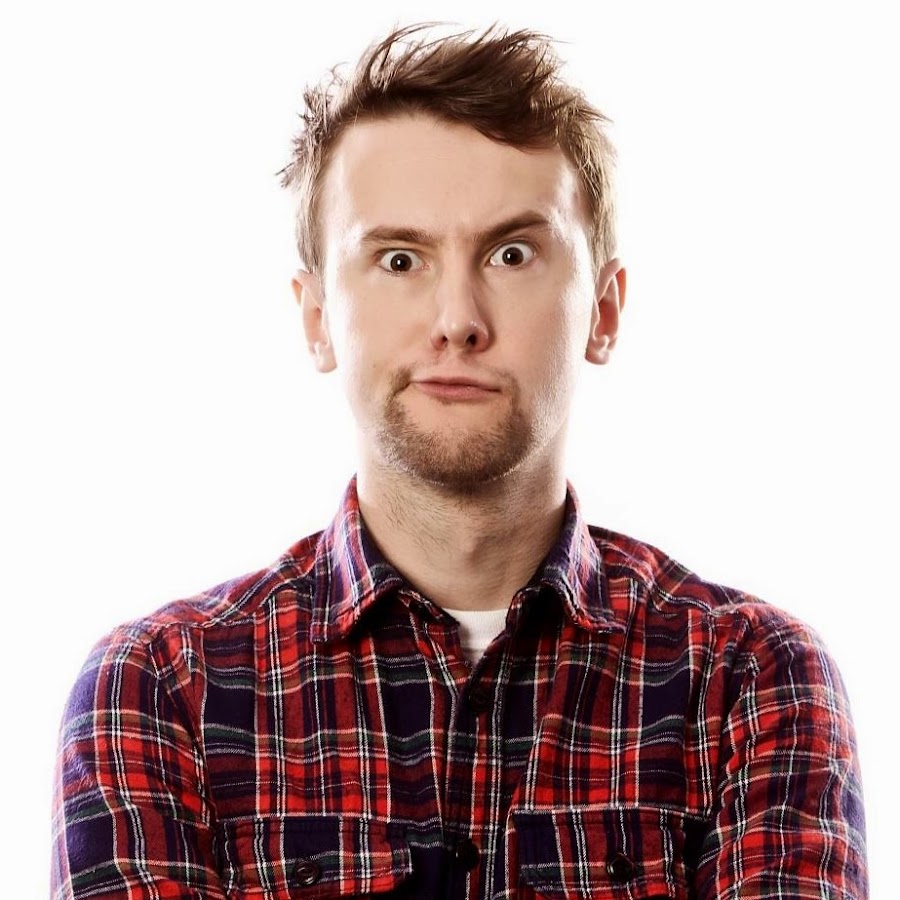Born in Florida in 1958, Thurston Moore is a singer, songwriter and guitarist, and co-founding member of Sonic Youth.
Moore spent his teen years in the New York punk scene, before forming his own band with then-partner Kim Gordon in 1981.
The New York quartet, originally associated with the city’s underground art and music movement, rose from their DIY beginnings and inspired the likes of Nirvana, Radiohead and My Bloody Valentine along the way.
They released 15 albums over a prolific 30-year stretch, but in 2011, after 27 years of marriage, Moore and Gordon announced their plans to separate, and called time on Sonic Youth. The band has remained defunct ever since.
Outside of Sonic Youth, Moore has collaborated with the likes of Neil Young and Yoko Ono. He’s also recorded four solo albums, including 2014’s widely praised The Best Day, scored films (Velvet Goldmine, Backbeat), published written work (Mix Tape: The Art of Cassette Culture), ran his own record label (Ecstatic Peace!) and worked as a producer for other artists.
So, after 35 years in the game, here’s what’s on his mind…
“I moved to New York in the late 60s when I was 10 years old. My father was a schoolteacher and he found some work up in Connecticut, which is about an hour outside of New York City. I was ravenous about rock ‘n’ roll through literature and I would buy any magazine that had Alice Cooper on the cover, be it Circus, Creem, Rock Scene or Rolling Stone. I’d either buy or steal all of them as a kid. Rock Scene was especially huge for me because it focused a lot on what was going on in New York, which no one else was really doing at that time. It was a real transitional period between the fallout of the big 60s rock world of Jimi Hendrix and Janis Joplin to what was happening in the underground in New York. Vietnam had ended and all of a sudden Jimi Hendrix had been replaced by The Carpenters. The idea of being radical just wasn’t happening on the radio, so things went really underground.”
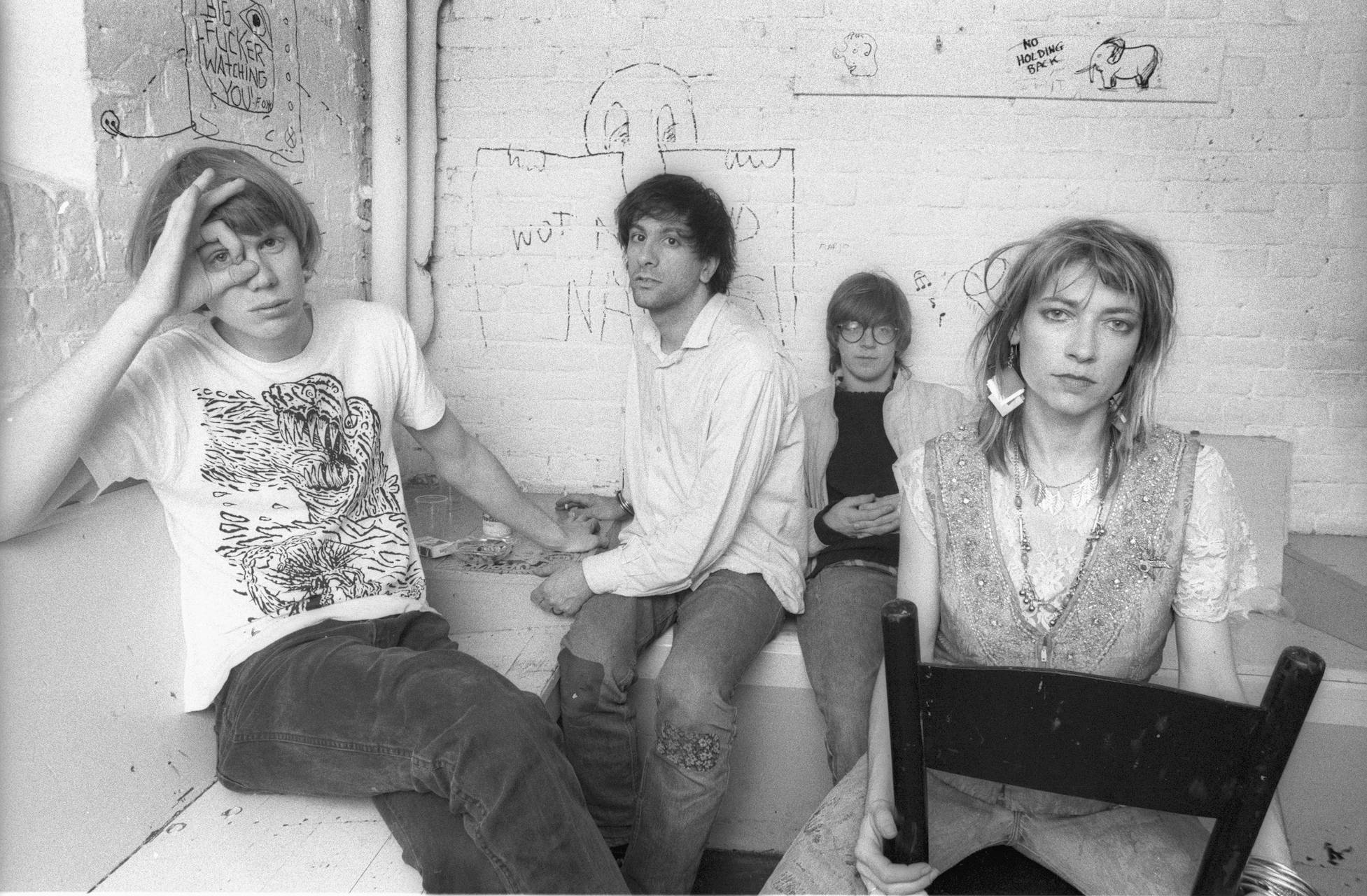
“When I started seeing pictures of Patti Smith and the Ramones during the mid-70s, I was like, ‘What is this?’ It was like an extension of what I liked about David Bowie, Alice Cooper and T-Rex, and things that were more like outsider art in the rock world. I could see it wasn’t just pop music for the masses; it was thoughtful and truly alternative. It was great to have those catalysts so close to home. Then I discovered the Sex Pistols, and John Lydon was another complete catalyst for me. He was a working-class yob from Finsbury Park who set fire to so much through his writing. For me, as a 19-year-old in 1977, I actually looked to the London punk scene as being more conducive to my experiences. When I moved to New York at 19 most of the people in that scene were older than me, and the ones who were my age were total freakazoids. I always felt like I wanted to move to London because that’s where my demographic was. Who knows what would have happened if I did.”
“Collaborations are where a lot of the magic happens. I like working in solitude and creating ideas myself then bringing them forward. But to work collaboratively, especially in free improvisation, is a really wonderful learning experience. And they feed each other. I can bring things that I do on my lonesome into collaborative measures, and visa versa. I’ve always been into the community of music. That’s why I ran screaming towards punk rock as soon as it was announced, because it seemed like a real community outside of the norm that rock had sort of positioned itself as during the mid-70s. The ambition towards being king of the hill was never mine. I like a level playing field, and that for me was one of the great things about punk rock.”
“Working with Yoko Ono was really intriguing. She has this philosophy that’s somewhat of a Buddhist idea, I think, of not naming the enemy, especially in politics where there are all these cretins going against the good guy. It’s like, don’t name the cretins; don’t talk about what they’re doing; just name the good guy instead. By naming the bad you’re giving energy to it. I don’t think Yoko is recognised enough for her musical vocabulary. People think she’s a conceptual artist who dabbles with music and what she does is unlistenable, but actually that’s not true. Music has always been at the forefront of her artistic vision and the way she uses her voice as an expressive instrument is extremely musical. Working with her I was astounded at how she continues, even now in her 80s, to be one of the most radical musicians out there.”
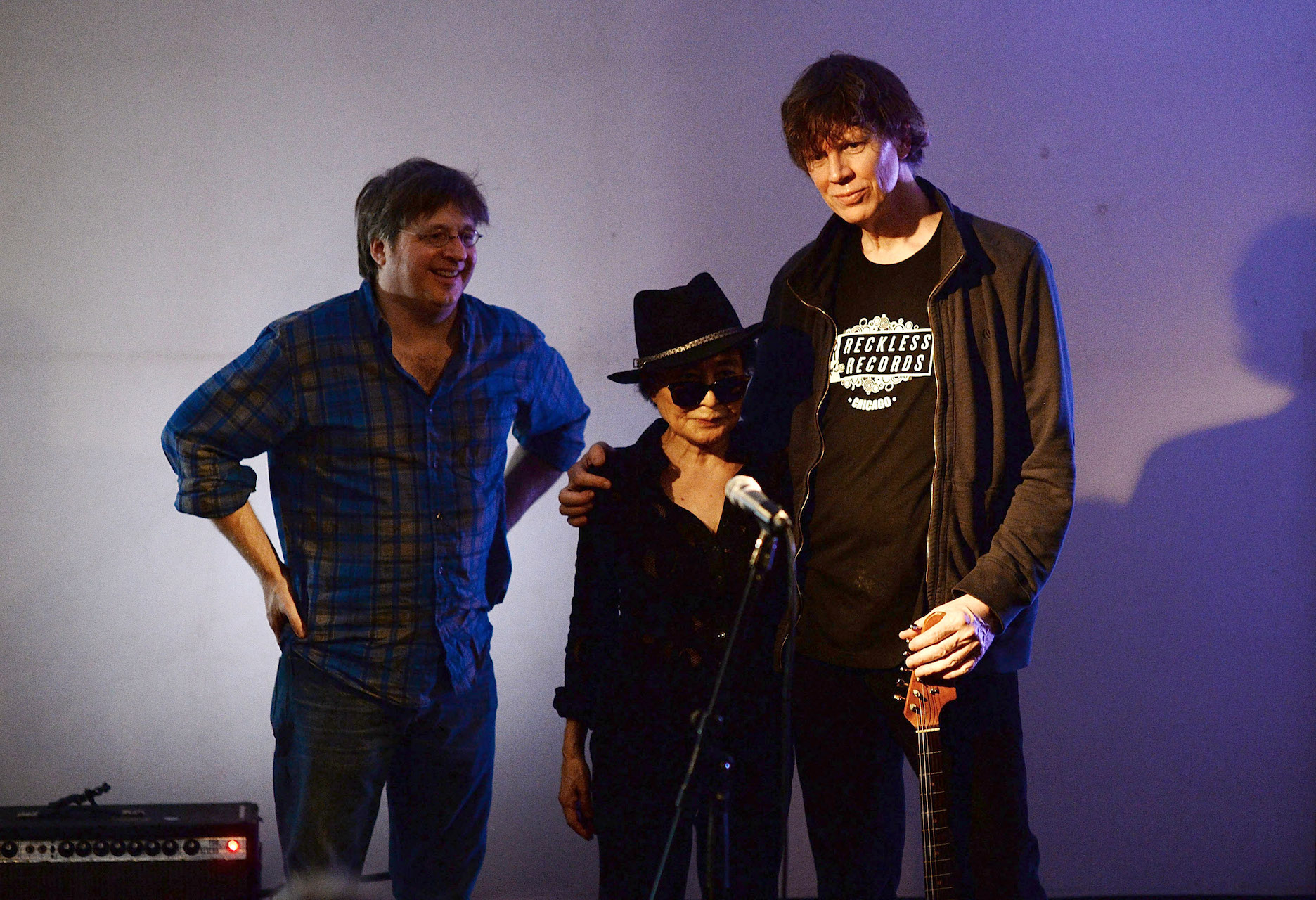
“We live in a dual society nowadays. We live in the physical world and the online world, and seeing how they relate to each other is really curious to me. A lot of the chatter of the online world doesn’t exist in the physical world, and it’s surprising sometimes when people say to me, ‘Have you seen what someone’s written about you online?’ Why would I want to talk about that? It’s not a reality to me and it’s not something that I’m worried about. But it’s certainly fascinating. I can’t imagine what it must be like to grow up in this digital age. Children growing up today have this sort of duplicitous situation all around them. It’s headache inducing and there’s no depth to it. People talk about the glory of the vinyl record or cassette tape or whatever, but there’s a certain truth to that. It’s mysterious and it’s analogue, and you’re not quite sure what you’re hearing because there are things going on that you can’t detail with numerals. Hearing digital music is like hearing data over and over again, and it’s a little boring. I’m not really format prejudice, but I do know that there are feelings that I get from analogue information that are not there in digital information.”
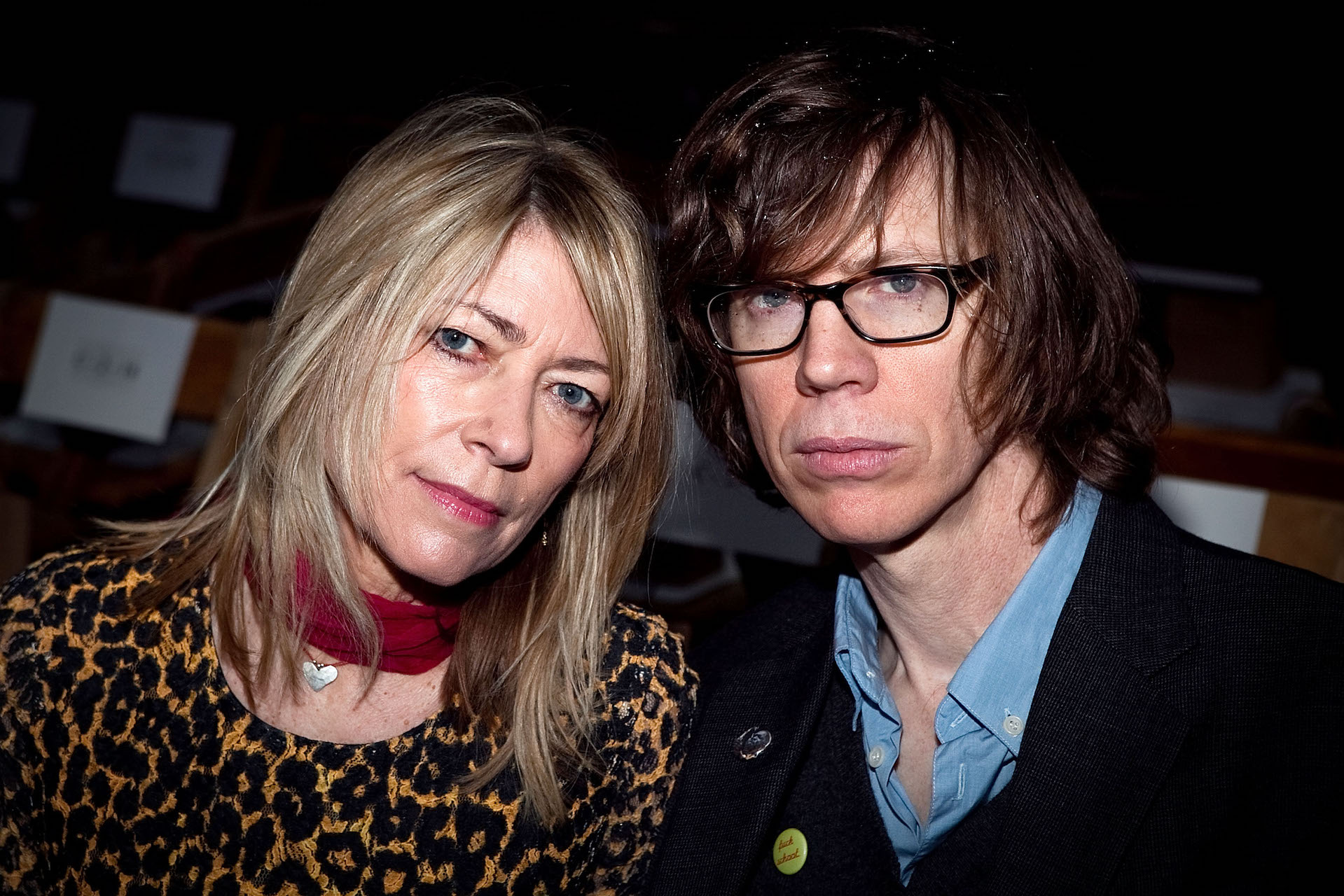
“It’s still too raw to tell if Sonic Youth will ever get back together. My relationship with Kim was there from the very beginning of the band, so it was always a constant and it created a certain dynamic both personally and professionally. We dealt with it as we got older, and we were able to get through a lot of whatever drama would ensue within the band itself and our own relationship. But I have no idea what the future holds. On the one hand, I feel like the band accomplished so much as four people who had this form of doing whatever we wanted to with music, by bringing all these disparate ideas together. We’re four completely different individuals, regardless of Kim and I being married and having that unity there. The ideas that were coming into the band were really unique to each person and that’s what made it the band that it was. I do miss that. I miss the democracy of creativity within a band. But at the same time I feel like there was so much of it – over 30 years and 15 albums. Of course I’ll always miss it. Sonic Youth is a name that I came up with and I have it tattooed on my body. It’s my heart. But I don’t feel like it’s something lost to the wind or anything like that. It’s something that has life beyond us, and I appreciate it for that. As time goes by new generations of music lovers come into the world, and all these enthusiasts find out about us and get turned on by us, and that’s incredible to me. So I feel consistently rewarded by it. And in a certain way I kind of like the closure, and I like being able to do other work without Sonic Youth being the primary thing in my life. So I miss it, and I don’t miss it. Right now it’s not so far away since the last time we played, and I think for it to ever exist again we would all have to find peace with each other before we can even think about getting back together.”
“I have real happiness in my life right now. I’m in a wonderful relationship and I’m happy living in London, which I think is an astounding city. Like anybody’s lives there are troubles. But you just have to have faith in the fact that everything is going to be OK. I know that’s a bit idealistic because there are lots of people who aren’t going to be OK. They’re brought into the world and into horrible circumstances. So I know that’s a bit disingenuous to say. But I think it’s a good mantra to think that way; that as sentient beings, we can and we will be OK. I just try to think good thoughts and not let the bad vibes take over. I kind of put myself into that gooey frame of mind and use kindness as a measure against people who seek to demean me. Our time on earth is so short and it’s important to try to think outside of whatever milieu that you’re in. You have to think about the entire world as opposed to this little world that’s in front of you, and not let day-to-day pettiness aggravate you, because it disappears if you let it.”
For more information on Thurston Moore, visit his website.
